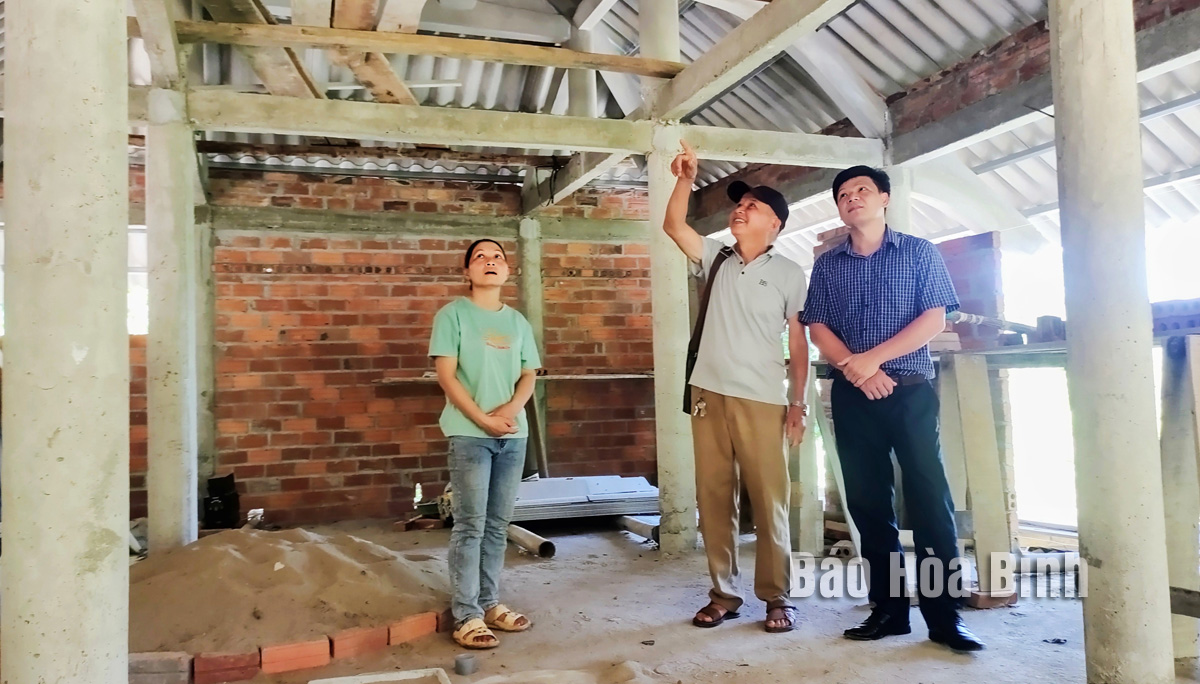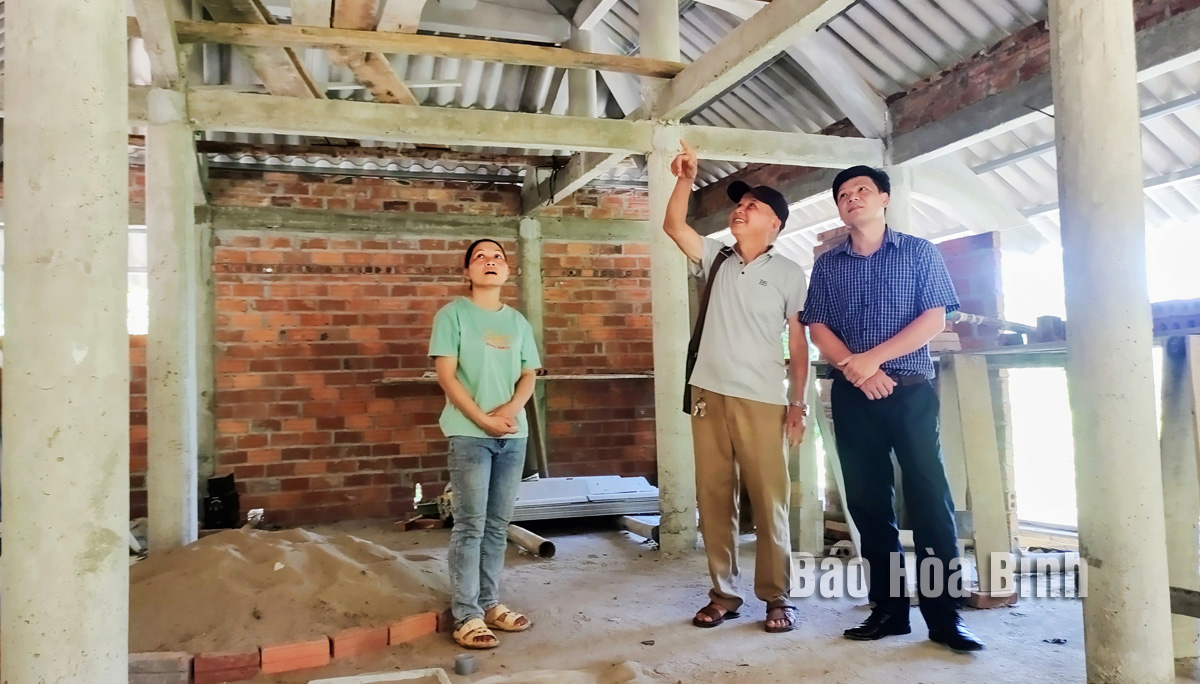
In recent years, the capital of the credit policy has made an important contribution to ensuring the social security and sustainable poverty reduction in the province, especially for the ethnic minorities and the mountainous areas.
The poor households in Thach Yen commune (Cao Phong) have received the loans supporting housing according to Decree No. 28/2022/ND-CP to build new houses and gradually stabilize their lives.
On April 26th, 2022, the Government issued Decree No. 28/2022/ND-CP on preferential credit policies to implement the National Target Program for the socio-economic development for the ethnic minorities and the mountainous areas in the period of 2021 - 2030, phase I is from 2021 - 2025. The credit programs according to Decree No. 28/2022/ND-CP coming to life have created motivation for many poor households and other beneficiaries under the prefferential policies in the areas of the ethnic minorities and the mountainous ones of the province to continue stepping steadily on its journey to overcome hunger and poverty.
Since the beginning of the year, Ms. Bui Thi Ben's family in Dai hamlet, Thach Yen commune, is one of the 28 households in Cao Phong district that received the loans supporting housing for the poor households living in the areas of the ethnic minorities and the mountainous ones according to Decree No. 28/2022/ND-CP. Ms. Ben's family is in difficult circumstances, their income depends on agriculture, their house is degraded, however, they do not have the means to repair it. In April 2023, with a loan of 40 million VND from the Bank for Social Policies (VBSP), plus the accumulated money, Ms. Ben's family was able to repair their house to make it more secure than before. "The economy is still very difficult, so the loan from the Bank for Social Policies has helped my family repair tour house and we no longer have to worry during the rainy and stormy days” - Ms. Ben shares. It is known that, in addition to Ms. Ben's family, there are 6 other households receiving loans supporting housing in Thach Yen commune.
like Ms. Ben's family, in early 2023, Mr. Bui Van Dinh's family in Quang Trong hamlet, Hop Phong commune (Cao Phong) was able to repair the old house. Previously, during the rainy season, Mr. Dinh's family was always worried because the house had deteriorated. Thanks to a loan supporting housing from the Bank for Social Pol, the house has now been renovated and it is spacious. According to Mr. Dinh, through the savings and loan group, they knew about the housing support loan so they applied for a loan. After having received, the district’s Bank for Social Policies guided the procedures and promptly disbursed the loan, helping the family have more funds to repair the house.
In addition to lending for housing support, the Provincial branch of the Bank for Social Policies has promoted lending for job change recently. Accordingly, many households have access to the capital to convert to raising buffaloes, cows, goats, deer, or planting, caring for forests, and providing services. According to the leader of the provincial branch of the Bank for Social Policies, although it has brought practical results, the capital is highly expected by the ethnic minorities. However, the progress of implementing the credit programs according to Decree No. 28/2022/ND-CP in the province is still slow so far. By the end of September 2023, the total outstanding debt of credit programs under Decree No. 28/2022/ND-CP, the loan only reached nearly 22.9 billion VND/401 customers. In the first 9 months of 2023, the loan rate reached nearly 17.7 billion VND, with 310 households receiving the loans, completing 76% of the plan.
The reason for the slow implementation of the credit programs for ethnic minorities and the mountainous areas is that there is no list of beneficiaries approved by the competent authorities. It can be said that Decree No. 28/2022/ND-CP is a major policy with a practical significance. The fact that the more-timely implementation of the credit programs according to the decree will create motivation for the ethnic minorities and mountainous areas to have capital to do business, develop the economy, and escape poverty sustainably.
The emulation movement "Hoa Binh joining hands to build new-style rural areas” has been widely spreading, becoming a driving force that motivates the localities to renew rural landscapes and improve the material and spiritual lives of the residents. In this movement, the people play a central role-both as the main implementers and direct beneficiaries of its outcomes.
In response to the global digital revolution, Hoa Binh Newspaper is transforming itself into a modern and multi-platform media hub, blending cutting-edge technology with a restructured newsroom and a new generation of tech-savvy journalists.
Hoa Binh province’s Association of the Elderly recently held a conference to review the project on expanding the inter-generation self-help club model until 2025.
In a move to implement Resolution No. 57-NQ/TW, issued on December 22, 2024 by the Politburo, which targets breakthroughs in science-technology development, innovation, and digital transformation, the Hoa Binh provincial Department of Health has issued a plan to roll out the "Digital Literacy for All” campaign within the local health sector.
An Nghia Commune (Lạc Sơn District) is one of the communes that achieved the tha standard of the national new rural area in 2018. Entering a new development phase, the commune is now trying to meet the criteria for the advanced new rural development. With the strong political will and the public consensus, the commune is gradually overcoming the challenges to reach this goal, aiming for the sustainable development.



